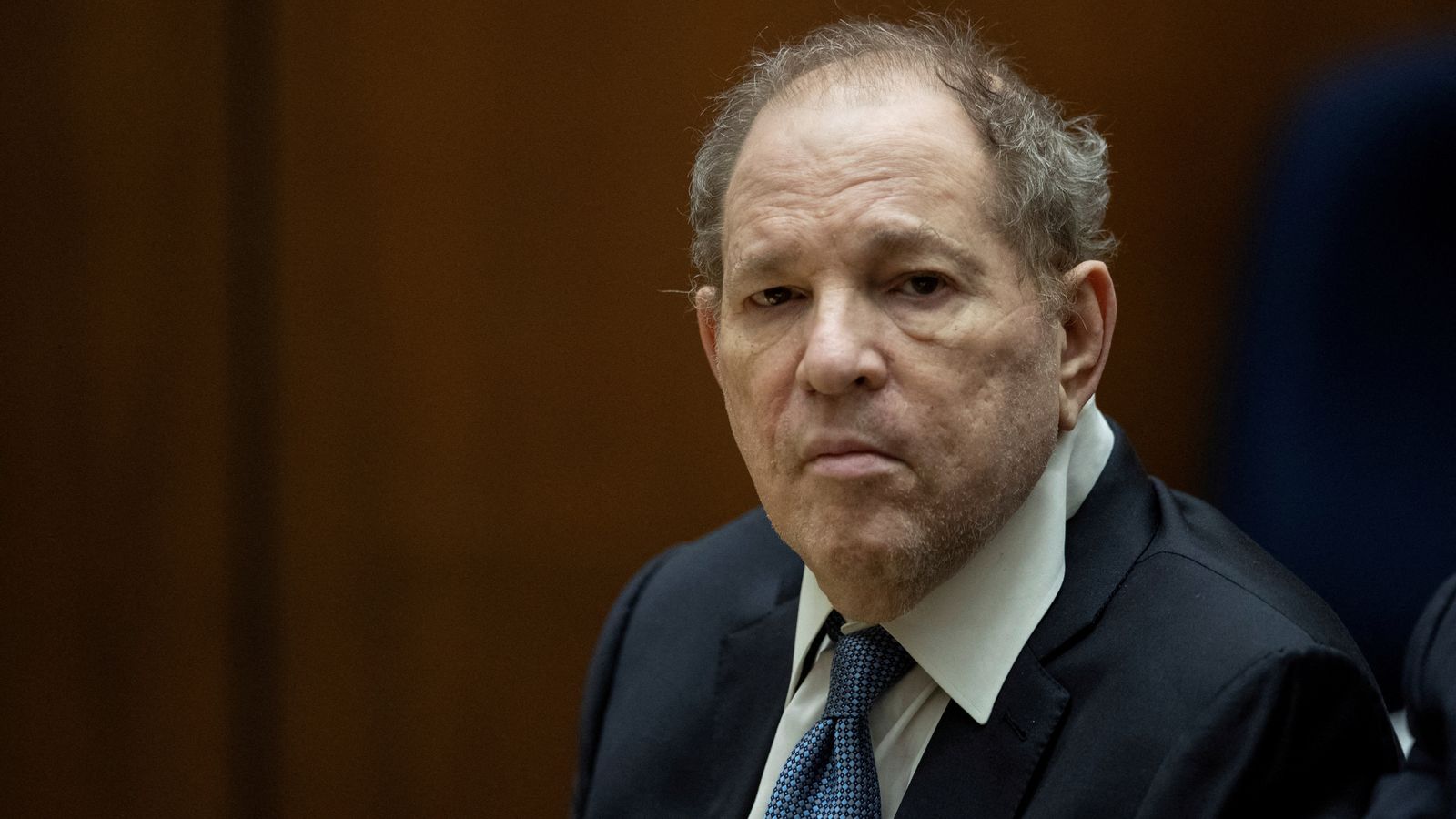Harvey Weinstein begs for mercy as he is jailed for another 16 years

Disgraced Hollywood producer Harvey Weinstein begged “please don’t sentence me to life in prison, I don’t deserve it” as he was jailed for another 16 years for rape and sexual assault.
Weinstein, 70, will serve the jail term after completing his 23-year-sentence for a sexual misconduct conviction in New York in 2020.
It is therefore highly possible he will spend the rest of his life in prison.
Weinstein begged for leniency as he was handed the latest sentence in a Los Angeles court today.
He was sentenced for the rape of an actress, named only in court as Jane Doe 1, at a hotel in Los Angeles in 2013.
A jury found him guilty in December of rape, forcible oral copulation and sexual penetration by a foreign object.
Weinstein said: “This is a made up story. Jane Doe 1 is an actress. She can turn the tears on.
“Please don’t sentence me to life in prison. I don’t deserve it. There are so many things wrong with this case.
“There are too many loopholes. Too many things wrong with this case.
Advertisement
“This is a set-up. This is not the way to act in this situation.”
He finally added: “I beg your mercy.”
Dave Ring, a lawyer for Jane Doe 1, said after the verdict: “The sentencing today provides Jane Doe 1 with closure and relief, knowing Weinstein will spend the rest of his life in prison where he belongs.
“It took tremendous courage for Jane Doe 1 and the other victims to come forward and testify… Weinstein is out of options.”
Weinstein spokesperson slams ‘cruel sentence’
A lawyer for another of Weinstein’s victims said afterwards that the disgraced producer will now spend the rest of his life in prison “where he belongs”.
Weinstein, once one of the most powerful figures in Hollywood, has said all of his sexual encounters had been consensual and pleaded not guilty in the Los Angeles case.
Prosecutors called for a “high-term” penalty of 24 years because of the prior conviction, rather than a “mid-term” sentence of 18 years that California law would otherwise prescribe.
Louisette Geiss, one of Weinstein’s accusers, said after the verdict: “While I am disappointed that Judge Lench did not sentence Harvey Weinstein to the maximum of 18 years, no amount of time in jail will erase the damage Weinstein has caused to the lives and careers of his survivors, including me.”
Weinstein’s team opposed the district attorney’s recommendation for a high-term, consecutive sentence, given Weinstein’s “advanced age and deteriorating health”.
A spokesperson for Weinstein said after the verdict: “It’s a cruel sentence, given his age, his health and the conditions of his conviction in Los Angeles, when the sole charge was from a person who lied, with the judge and prosecutor well aware of it and permitting it, about critical elements of her own claim. It’s not justice, but a pile on for a man many people just decided should be cast off and discarded regardless of facts.”
Read more:
The women who fought Harvey Weinstein in court
The jury acquitted Weinstein of charges relating to a second alleged victim and failed to reach a unanimous verdict on charges arising from two other accusers.
One of them, documentary filmmaker Jennifer Siebel Newsom, now the wife of California Governor Gavin Newsom, had disclosed she was the alleged rape victim referred to in court records as Jane Doe 4.
Weinstein appealing New York conviction
Los Angeles Superior Court Judge Lisa Lench declared a mistrial on the deadlocked charges.
Defence attorneys argued that the women willingly had sex with Weinstein because they believed he would advance their careers, part of what they said was a widespread “casting couch” culture in the film industry.
In two of the cases, they said the alleged sexual contact was fabricated.
Weinstein was convicted of sexual misconduct in New York in February 2020.
He was extradited from New York to Los Angeles prison in July 2021.
Weinstein is appealing the New York conviction and prison sentence.
Allegations against Weinstein helped fuel the #MeToo movement, which has encouraged women to speak out about sexual harassment and abuse by powerful men in certain industries.
The movement, which went viral on social media in 2017, seeks to break a culture of silence that has long allowed such conduct to go unchallenged.